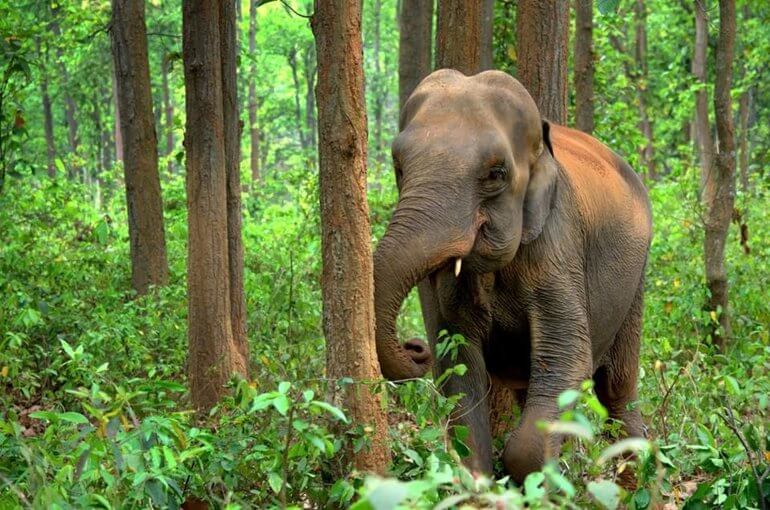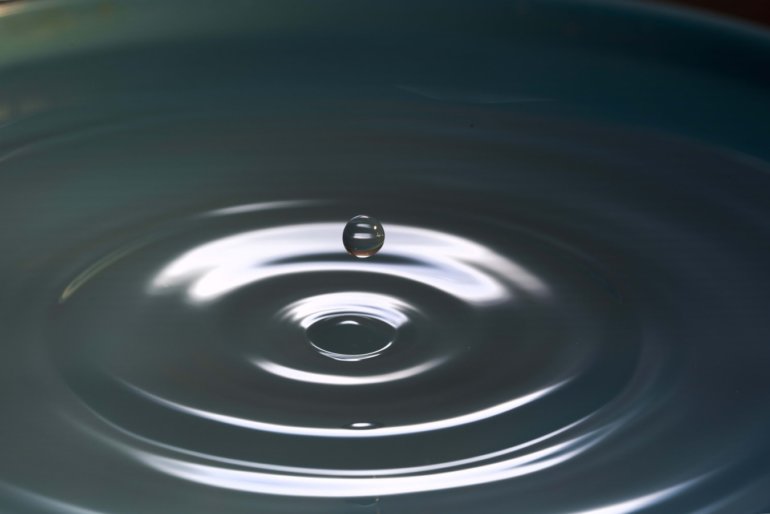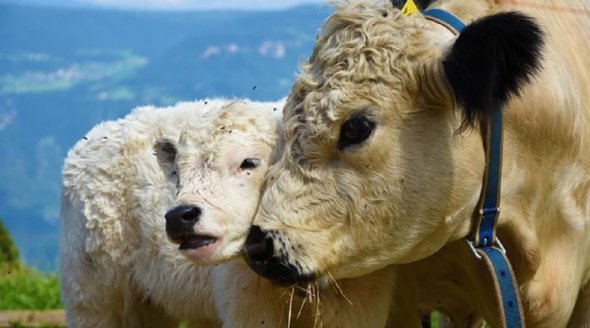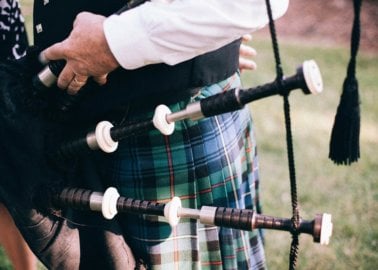Giant Ice Animals Melt in Heatwave in PETA Call to Go Vegan
As record-breaking heatwaves have swept across the planet in recent years and 2020 is likely to be the hottest year on record, PETA placed a trio of giant ice sculptures – a pig, a cow, and a chicken – by London’s Marble Arch in a call for passers-by to make the connection between animal agriculture and the climate crisis.
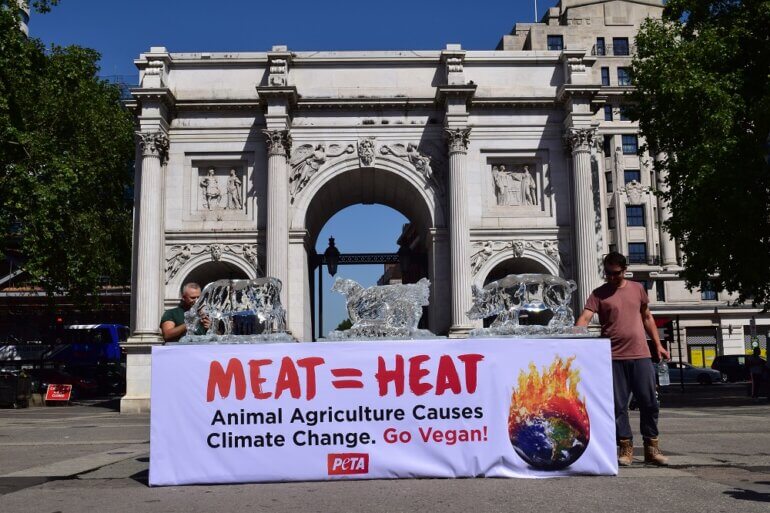
Over the course of the day, the sculptures melted in front of a banner proclaiming, “Meat = Heat. Animal Agriculture Causes Climate Change. Go Vegan.”
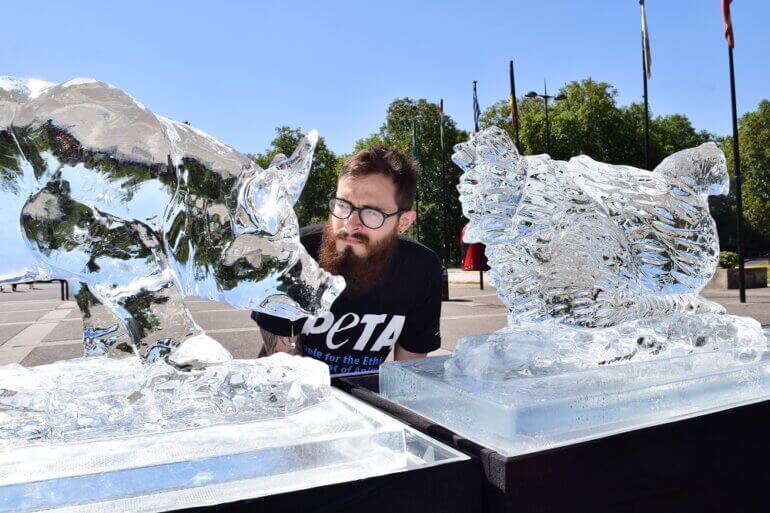
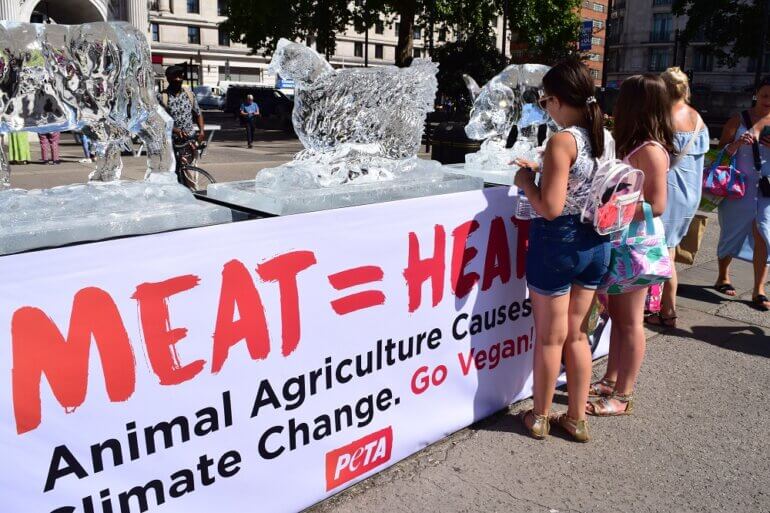
The action follows a study published this week by the Climate Impact Lab, which warns that the death toll from extreme heat could nearly equal the current death rate from all infectious diseases combined by 2100 unless climate-changing greenhouse-gas emissions are drastically reduced.
Eating Meat Fuels the Climate Crisis
Animal agriculture is responsible for a greater proportion of greenhouse-gas emissions than all forms of transportation combined, according to the United Nations.
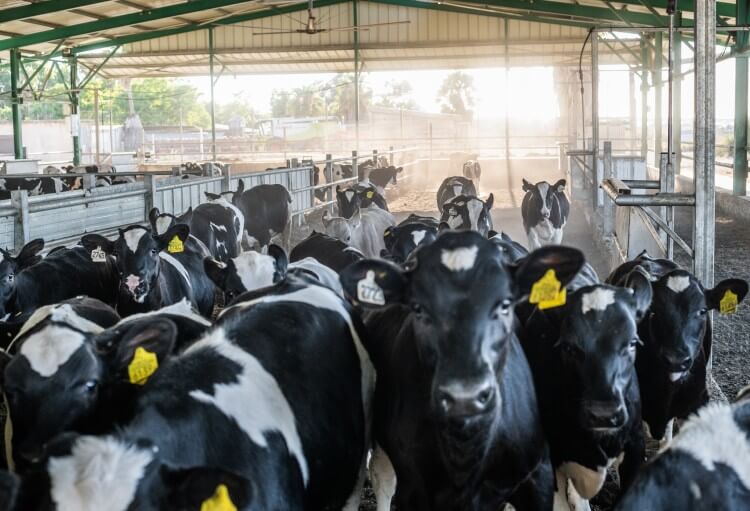
The UN also states that raising animals for food is “one of the top two or three most significant contributors to the most serious environmental problems, at every scale from local to global”. The situation is so dire that the UN is calling for urgent and unprecedented changes now, including to our diet, to limit the catastrophic damage caused by climate change.
Researchers at the University of Oxford found that going vegan could reduce our carbon footprint from food by up to 73%, resulting in a significant drop in greenhouse-gas emissions.
The study’s lead author, Joseph Poore, states the following:
“A vegan diet is probably the single biggest way to reduce your impact on planet Earth …. It is far bigger than cutting down on your flights or buying an electric car.”
Scientists agree that all plant-based foods have a smaller carbon footprint than their animal-derived equivalents, so the easiest way to slow down climate change immediately is to go vegan.
Life on Earth
Exploiting animals for their milk, flesh, and eggs is pushing our natural environment and life on Earth to its limits. WWF’s Living Planet Report 2018 states that 60% of wild-animal populations have been lost since the 1970s.
It identified habitat loss as the main cause of extinction. In the UK, 26% of mammal species are at risk of extinction and 41% of bird species have declined, while almost half of the farmland is used for grazing animals like sheep and cows, at the expense of nature.
Despite this crisis, humans are still razing some of the most species-rich areas on Earth – including rainforests in South America – in order to graze cows or grow soya that is fed to cows, chickens, sheep, and pigs. One-third of the Earth’s land surface is used for animal agriculture, but if we all stopped eating meat and dairy, global farmland use could be reduced by 75%.
Water Footprint
As if violence towards animals and environmental destruction weren’t enough, animal agriculture also has a shocking water footprint. Meat-eaters are responsible, on average, for the use of 15,000 litres of water a day.
While it takes about 1,790 litres of water to grow 1 kilogram of wheat, you’d need to use more than five times more water for 1 kilogram of beef. It takes the equivalent of 50 bathtubs full of water to produce just one steak.
It’s not only meat production that wastes water, either. It takes 72% more water to produce a litre of cows’ milk than it does to produce the same amount of soya milk.
Using this much water unnecessarily at such an alarming rate harms the planet and us, but going vegan drastically changes the numbers. By eating plant-based, we reduce our water footprint by nearly 60%.
What You Can Do for Animals and the Planet
We can decry the devastation wreaked by the climate crisis all day long, but as long as we have meat in our mouths, we might as well whistle into the wind.
Not eating meat, fish, eggs, or dairy is the most impactful way for each person to take direct action to protect our planet – and to reject the daily cruelty that occurs at abattoirs and on factory farms in the UK and elsewhere.
For help getting started, order a free vegan starter kit full of tips and advice for every part of your journey.

